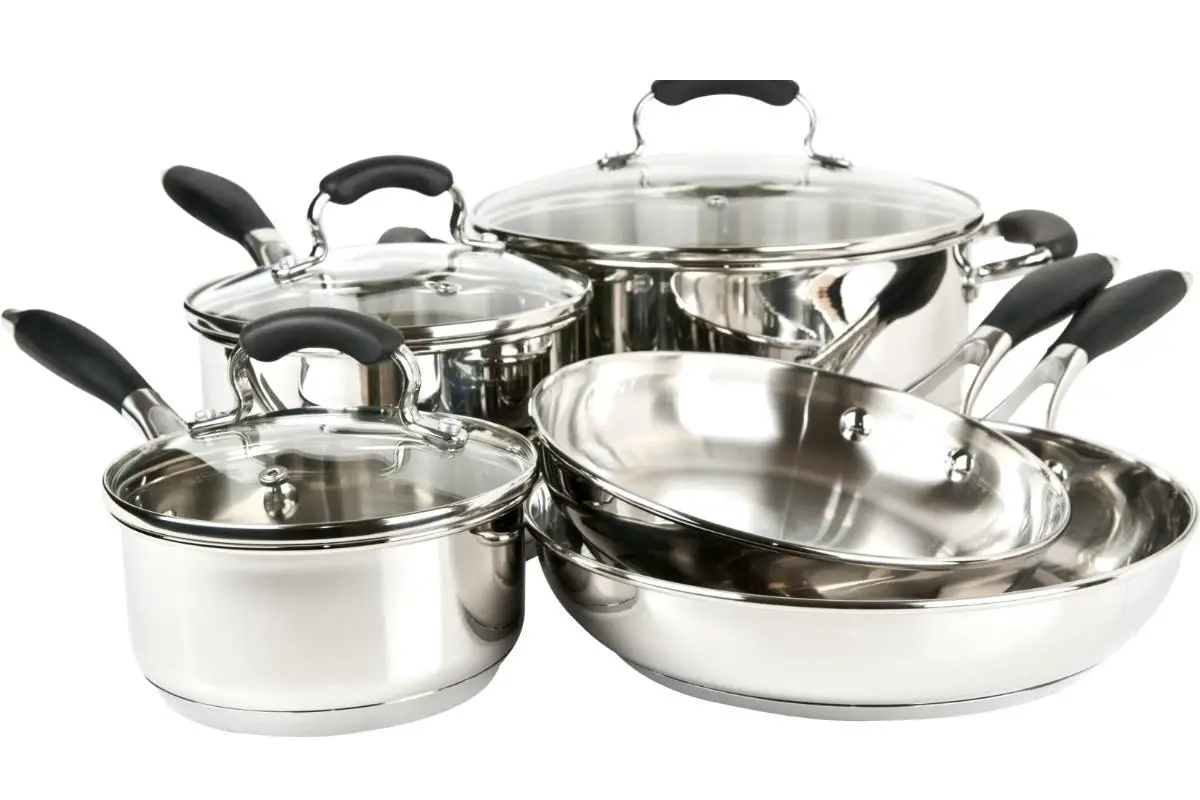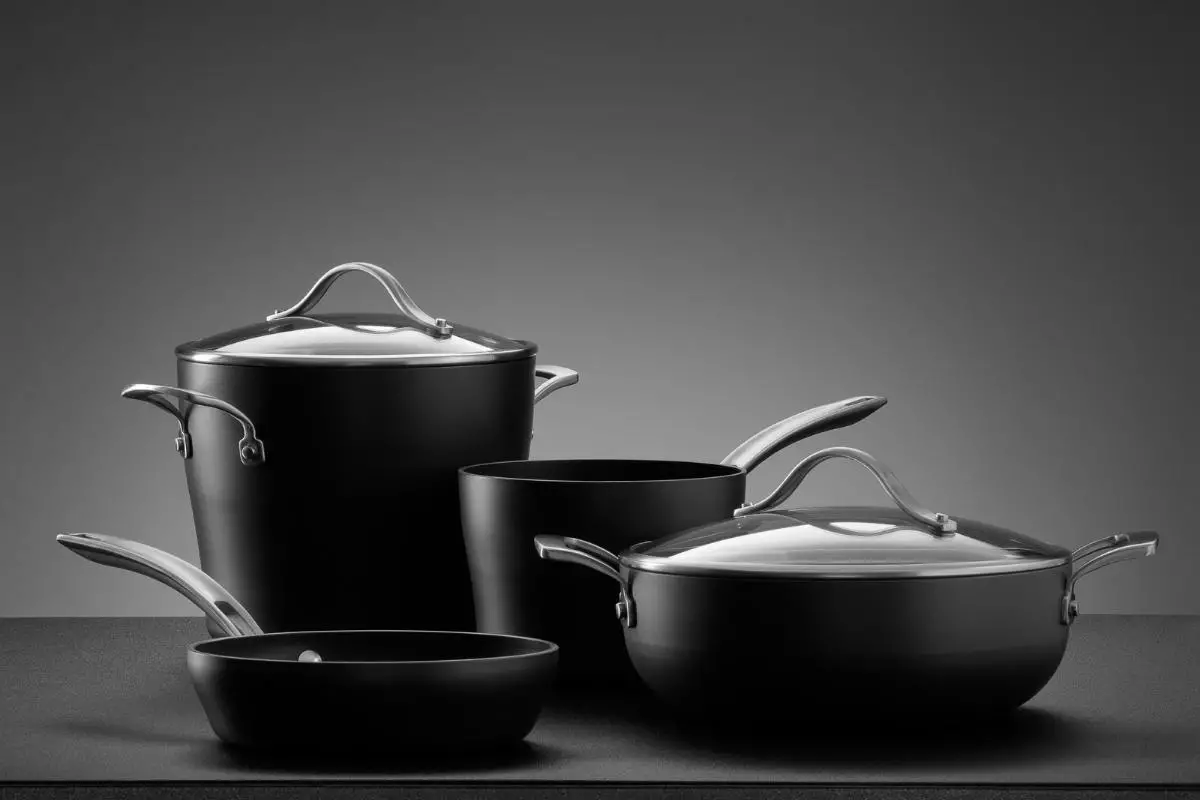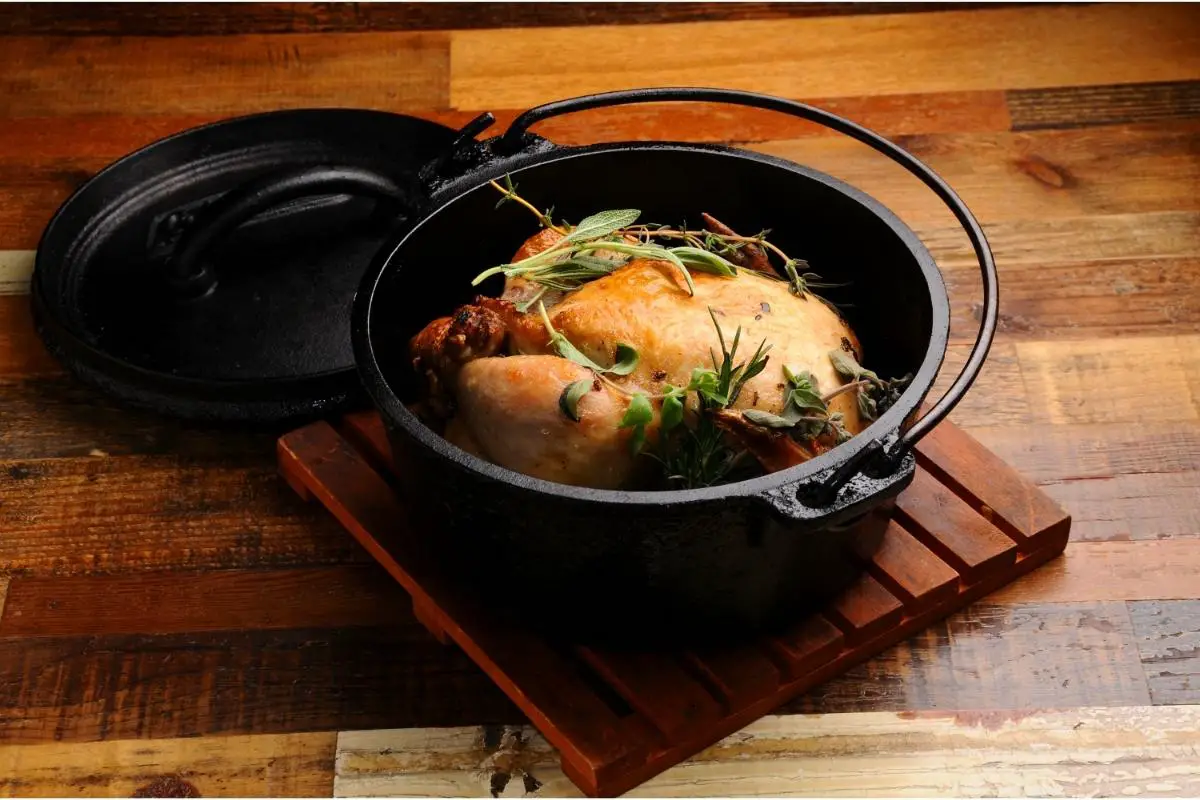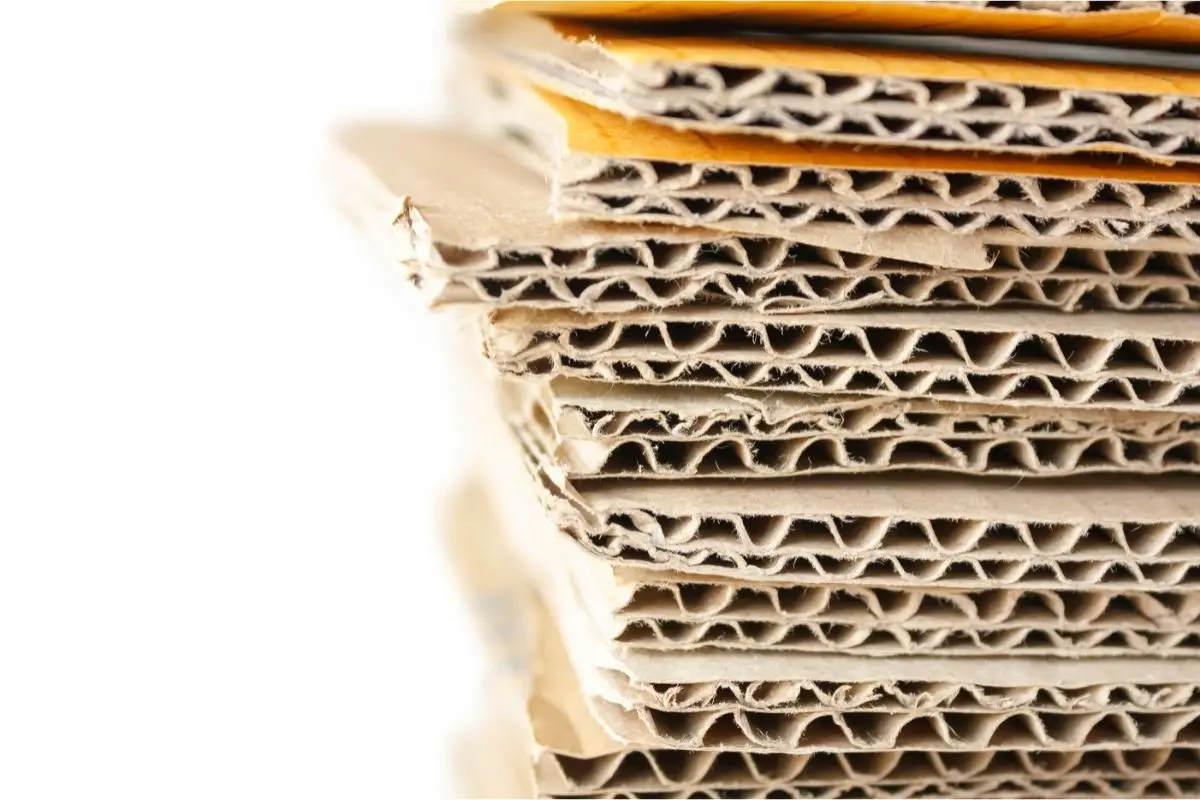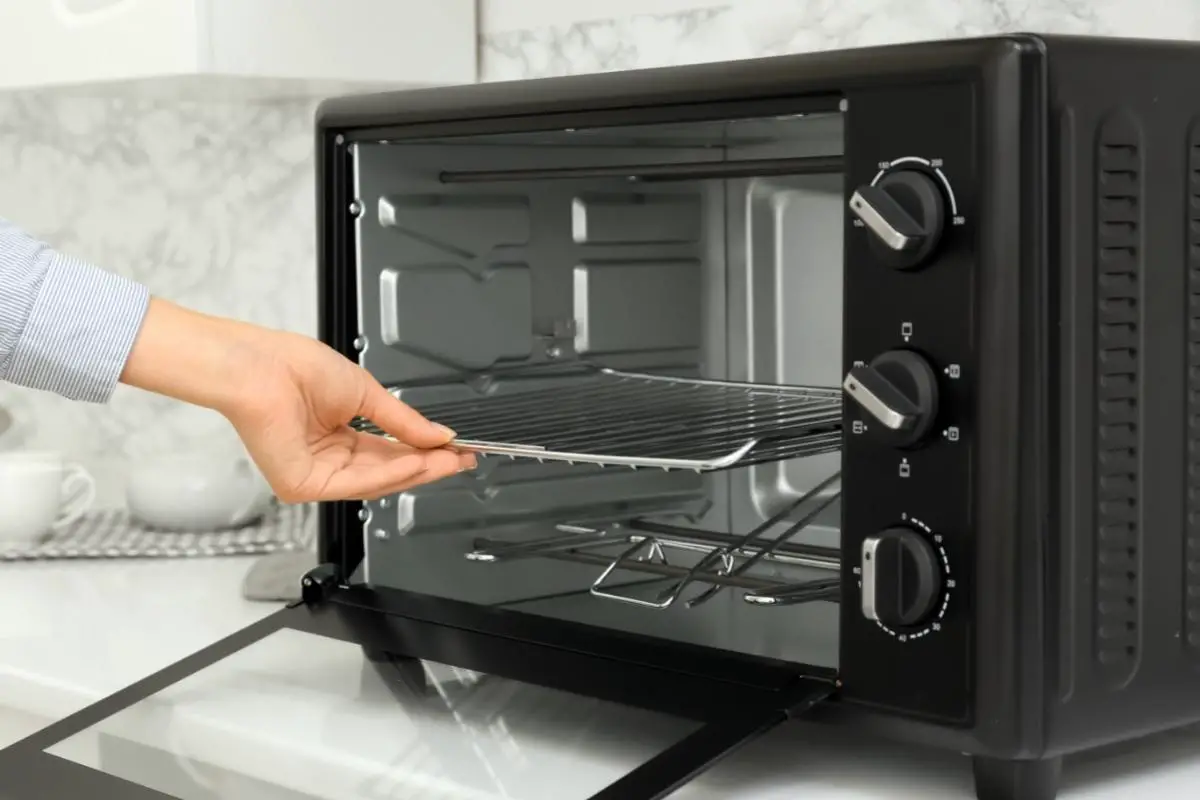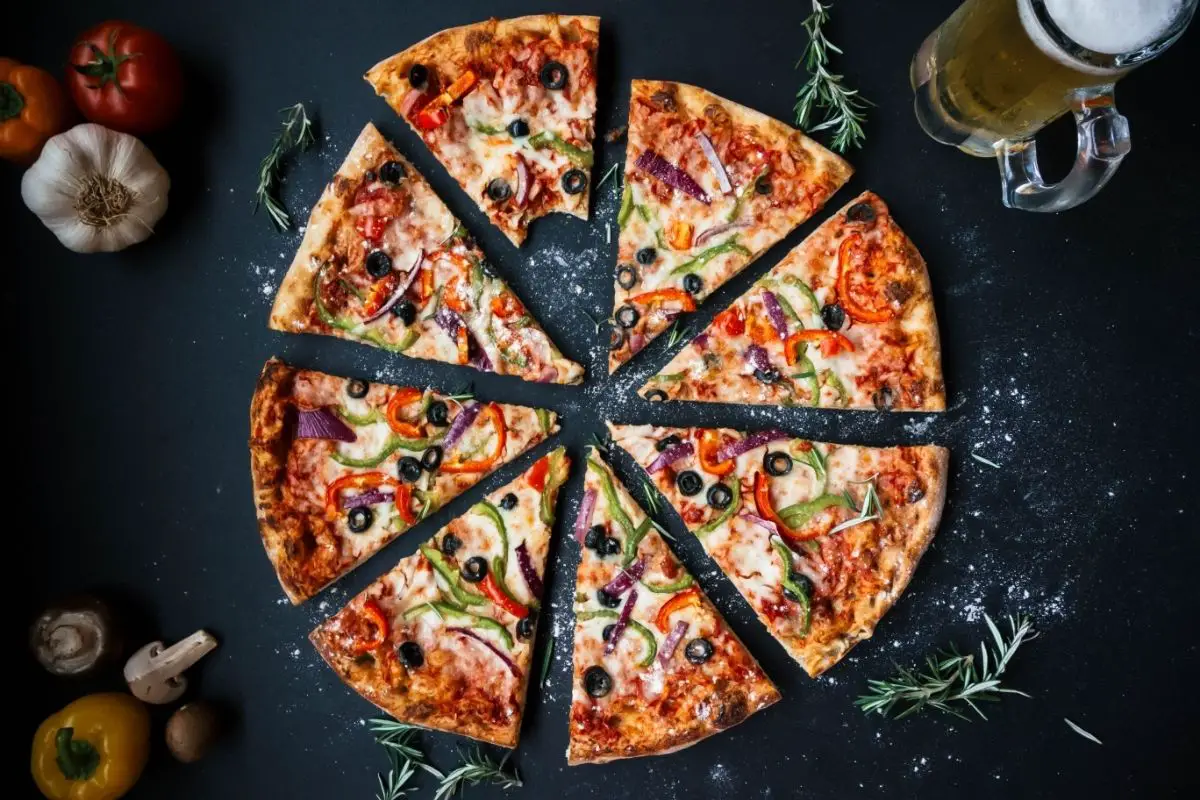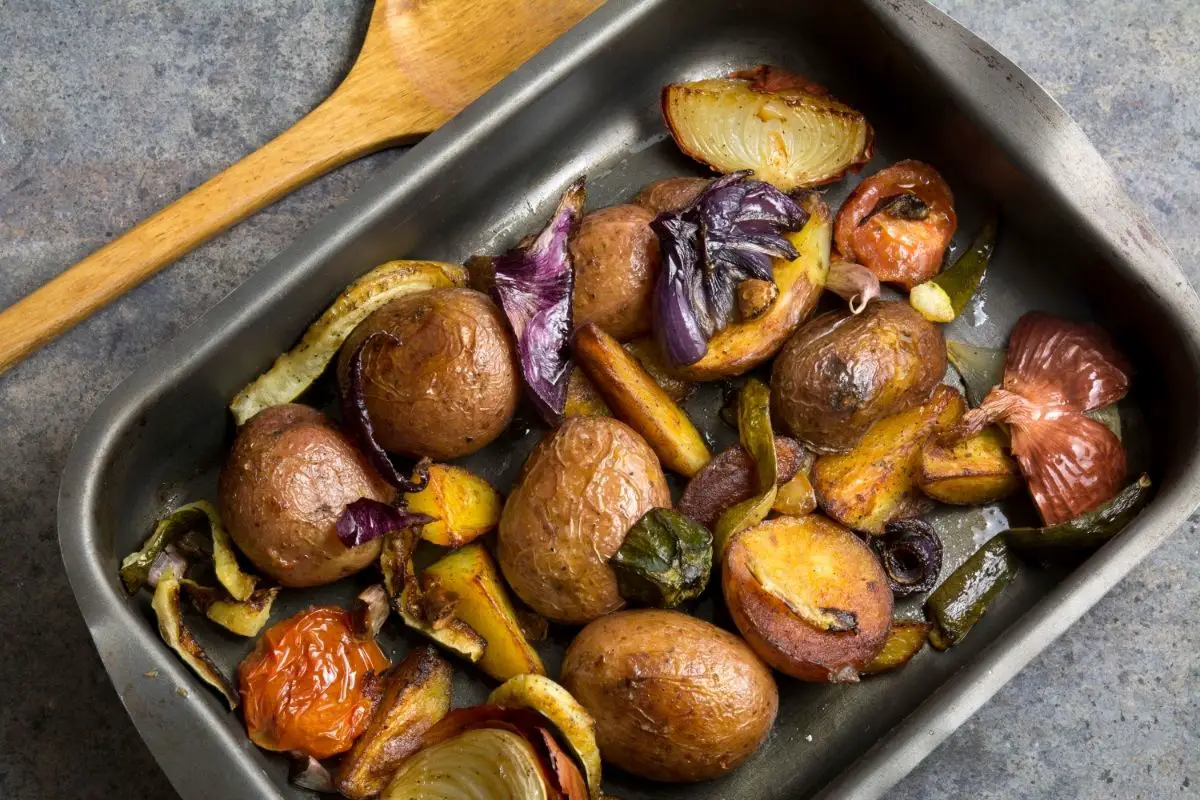When out shopping for new cookware, you may have noticed that some ceramic dishes and pans are starting to feature the label ‘ceramic titanium’ instead of just ‘ceramic’ – but is the difference and is ceramic titanium really safe to use?
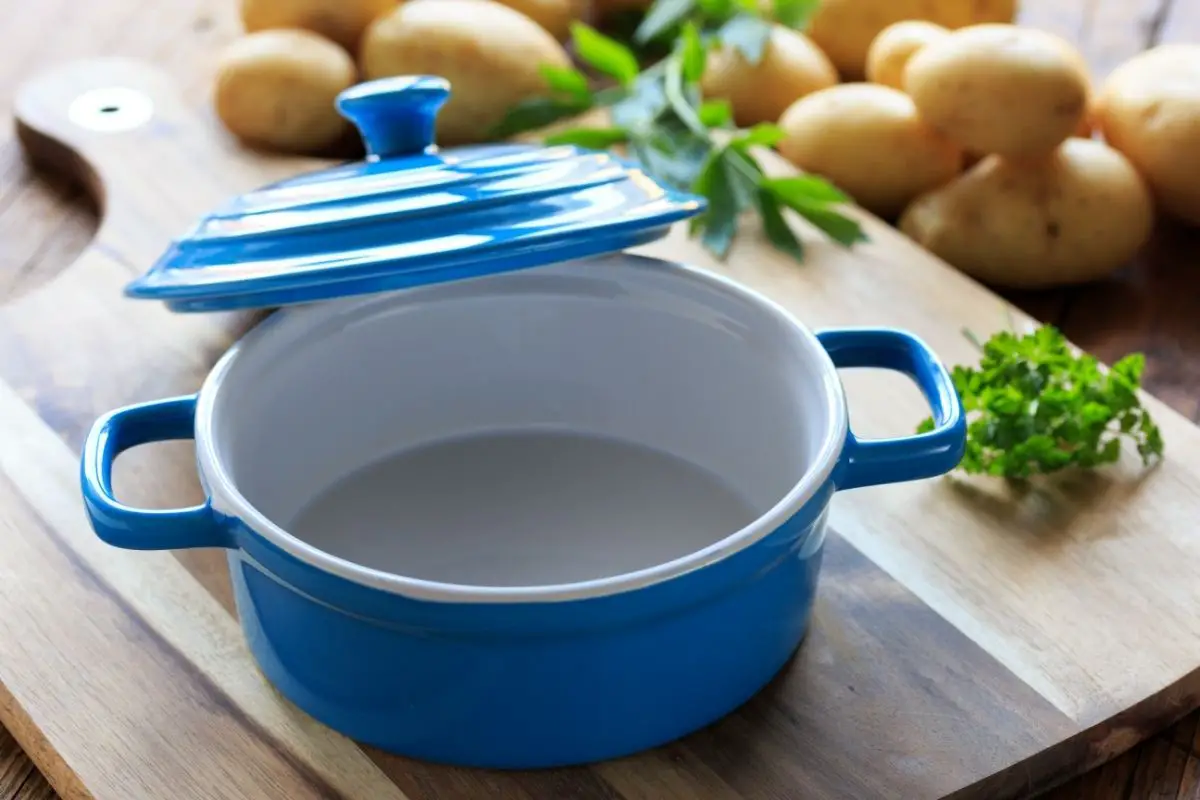
If you are concerned about using ceramic titanium dishes and pans, then this is the place for you.
We are going to be diving into ceramic titanium including looking at what it is and if it is a good alternative to classic ceramic.
So – let’s take a closer look at ceramic titanium!
What Is Ceramic Titanium?
Pans that are labeled as ‘ceramic titanium’ are pans made purely of titanium metal and feature a thin layer of coating made of ceramic.
These types of cookware became really popular in the 1980s because titanium is one of the safest metals to cook with, and the ceramic coating made the pans non-stick for easier cooking.
This means that cooks could now get away with using less oil, making their foods healthier. The ceramic coating also gives the pans a smooth, glossy finish which makes it visually appealing.
Ceramic titanium cookware was designed to be an improvement on the ceramic cookware of the 1960s and easier to use than titanium cookware.
However, over the years, questions and concerns have risen over the safety of ceramic titanium cookware – but what could be so dangerous about a cooking pan?
Is Ceramic Titanium Cookware Dangerous For Cooking?
As ceramic titanium cookware became more and more popular, a lot of people began to notice a few flaws in its design.
The ceramic coating on ceramic titanium cookware is not impervious and over time, chips and cracks begin to form in the coating.
This is due to its fragility because the ceramic is spread so thinly over the titanium surface. Although you may be concerned about chips of ceramic ending up in your food, ceramic is harmless.
However, many people believed that the chipped ceramic coating leaks out dangerous chemicals like lead or cadmium from the metal underneath.
These hazardous chemicals that over time can lead to serious health concerns – but this is not the case.
This is because ceramic titanium contains just that – ceramic (which has a similar composition to stone) and titanium, two of the safest materials to use to cook with.
Due to strict restrictions here in the US, there is no lead or cadmium used in ceramic products. The confusion most likely comes from previous concerns about using aluminum core cookware with Teflon coating.
Cookware that features an aluminum core is risky to use. This is because it is highly reactive to heat, meaning that it often leaks into the food while cooking at high temperatures.
If you were to cook a meal using aluminum pans, you may taste a slight metallic tang to your food – this is due to the aluminum used to make the pans.
Teflon coating is another concern when it comes to cookware. Teflon is used in a lot of household products, and sometimes makes its way onto pans.
It is a plastic that is sometimes used as a coating for nonstick pans – but when the coating reaches high temperatures, it can release toxic fumes that cause medical concerns.
Ceramic titanium cookware does not use aluminum or Teflon in its design, so it is perfectly safe to use.
In fact, it is a safer alternative to older cooking utensils so the only thing you have to worry about when using ceramic titanium cookware is tiny chips of ceramic ending up in your food.
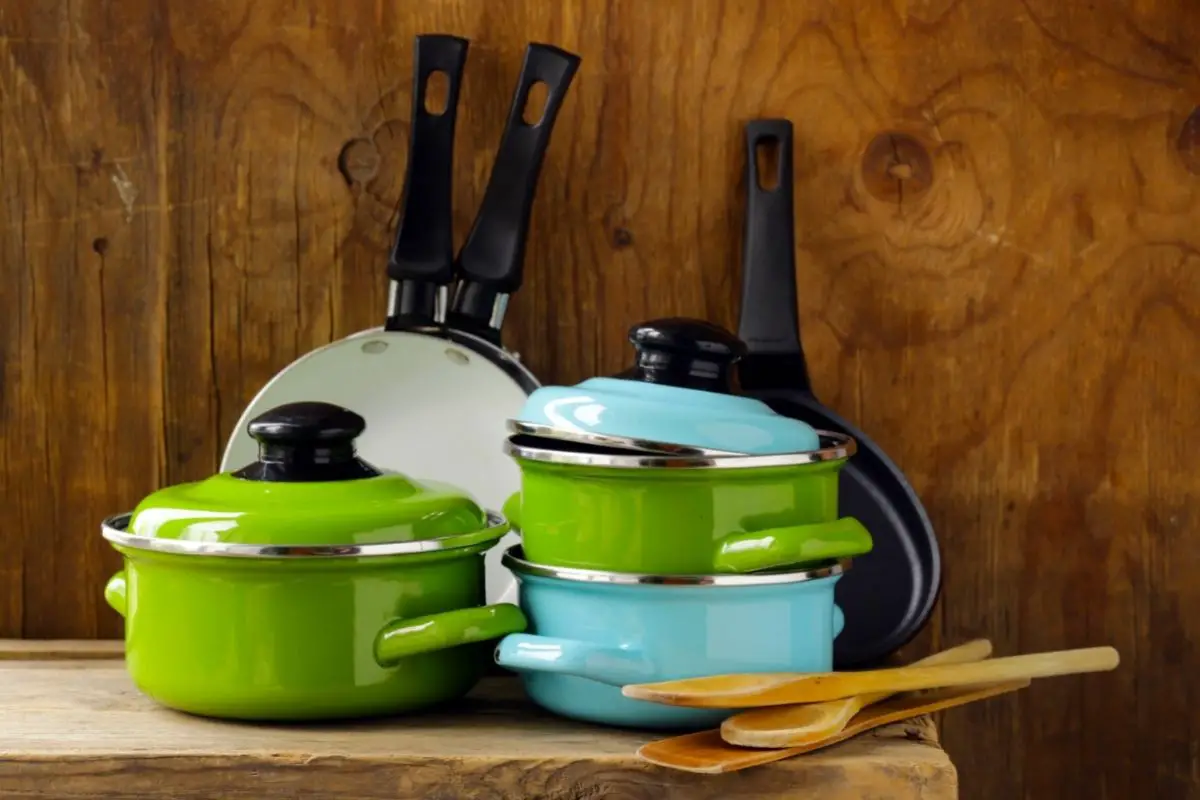
How To Care For Ceramic Titanium Cookware
Chips and cracks are inevitable with ceramic titanium cookware but steps can be taken to improve its durability, so your pans will last for longer.
It’s important to note that chips or cracks in your ceramic titanium pans are harmless, and so are accidentally consuming the odd flake of ceramic here and there.
However, if you want to avoid this possibility, then here are a few things you can do to improve your pans’ durability.
Handwashing your ceramic titanium cookware will lead to fewer scratches and lower the chances of the ceramic coating chipping.
So, instead of putting them in the dishwasher with your other dishes, hand wash them with warm soapy water.
Do not use abrasive materials when cleaning your ceramic titanium cookware. Stick to soft sponges and cloth instead.
If you have a particularly stubborn stain on your ceramic titanium pan, then leave it to soak to loosen the stain instead of trying to scrub it off with something abrasive and rough.
Baking soda is also a great way to lift tough stains so sprinkle some on your pan’s surface and then let it soak for 30 minutes.
Remember to efficiently rinse off the baking soda before you dry your pans and put them away.
By following these steps, you can ensure that your ceramic titanium pans remain efficient and durable for far longer than they would have if you had just treated them like any other cookware.
Ceramic Titanium Vs Ceramic
If you are still unsure about using ceramic titanium cookware, you may be tempted to look for an alternative. Ceramic cookware is often used, but are there any health concerns there that you should also be aware of?
Ceramic cookware is also known as ‘green’ cookware and has been around since the 1960s.
The reason it is still used today for things like cookware coating is because it is very safe to use. It does not contain any chemicals that will leach into your food and it is a completely non-reactive material.
So, if you do not or cannot have ceramic titanium cookware, plain old ceramic is fine and safe to use instead.
Conclusion
So – is it safe to use ceramic titanium?
Definitely! That is why so many cookware manufacturers today design their products using these materials.
Titanium is one of the safest metals to cook with and ceramic is non-toxic and non-reactive, making it ideal for nonstick coatings.
The materials you want to avoid using are Teflon and aluminum as these materials are known to release dangerous fumes and leach chemicals into your food as you cook using high temperatures.
So, it’s safer to use ceramic titanium or plain ceramic cookware instead!
- What goes good with fried shrimp for dinner? - November 17, 2022
- Best Heat Diffusers for a Gas Stove - November 16, 2022
- Can you boil potatoes too long for mashed potatoes? - November 15, 2022

